About Carlson Center
Behavioral Health Network, Inc. (BHN) is the largest regional provider of clinically appropriate, effective and low-cost substance use recovery and mental health care in Western Massachusetts. Their Carlson Center facility is situated at Chestnut Street in Springfield Metro Center near Brightwood and Liberty Heights within Hampden County.
Individuals struggling with co-occurring disorders or dually diagnosed mental health and substance use disorders are supported as well. BHN offers guidance and equips individuals with tools that promote positive changes and help them lead fulfilled lives. They accept Medicaid and provide a sliding fee scale to the uninsured & underinsured. This ensures no one is denied care due to their inability to pay.
BHN boasts over 40 networks of behavioral health facilities across five counties and serves at least 38,000 individuals annually. Among them are BHN Carlson Recovery Center and Unity Place South, offering inpatient opiate detoxification, residential co-occurring disorders treatment and DUI services for court-involved clients.
Medically Supervised Opiate Detox and Residential Care
Carlson Center offers supervised withdrawal management for adults including nonbinary individuals, experiencing acute or imminent opiate withdrawal. The program also serves those who seek to overcome opiate dependence, alcoholism and benzodiazepine use disorders. Patients stay for about a week in the Center receiving 24/7 medical supervision and support from a team of specialists to ensure safe stabilization.
These experts administer FDA-approved meds to help with symptom management. They also offer trauma-focused care using proven practices like cognitive behavioral techniques, motivational enhancement and mindfulness-based stress reduction strategies to support recovery.
Once you’re stable and in good health, they’ll connect you to the appropriate level of care for ongoing recovery. This could either be within the BHN network or outside providers. Adult male and nonbinary individuals with co-occurring conditions can continue recovery in Unity Place South’s 16-bed residential rehab within the same facility.
While onsite, they’ll receive personalized care through therapy groups and individual counseling to support their recovery journey. They’ll also benefit from the support of peer specialists who offer guidance, encouragement and firsthand recovery experience. The program includes tailored aftercare planning to support long-term recovery and smooth reintegration into daily life.
Support for Justice-Involved Individuals
BHN is approved by BSAS under the Department of Public Health (DPH) to provide DUI Offender Programs across their network of facilities including at Carson Center. They offer educational classes for first-time offenders, as well as assessments and individual treatment for repeat offenders.
The goal is to reduce recidivism and support lasting behavior change. They also process referrals for 24Q court-ordered substance use assessments and recommendation reports. Additionally, they support offenders with out-of-state convictions or registry mandates related to substance use services. All out-of-state DUI diversion mandates are assessed and provided if eligible.
Latest Reviews
Rehab Score
Gallery
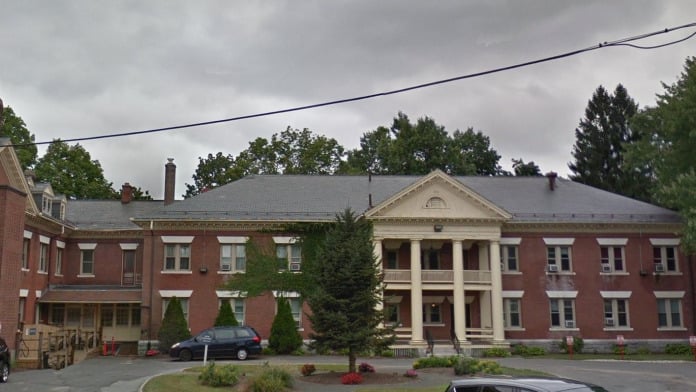
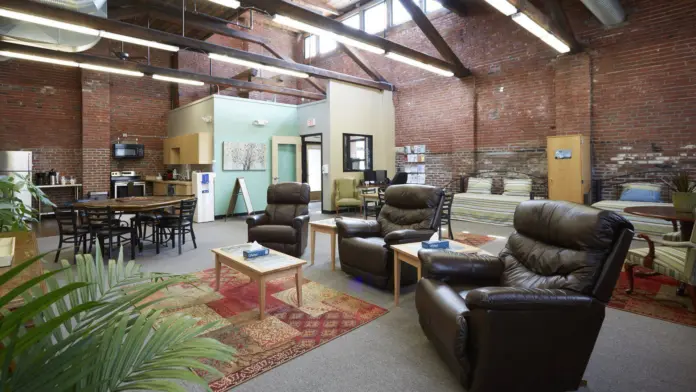
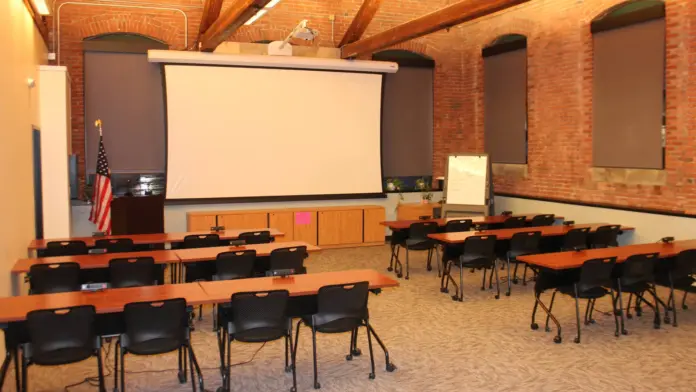
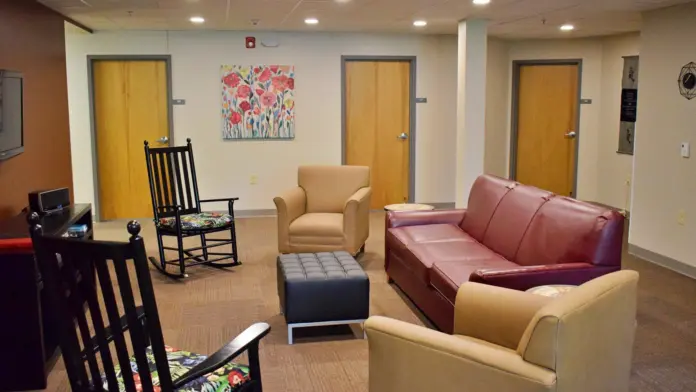
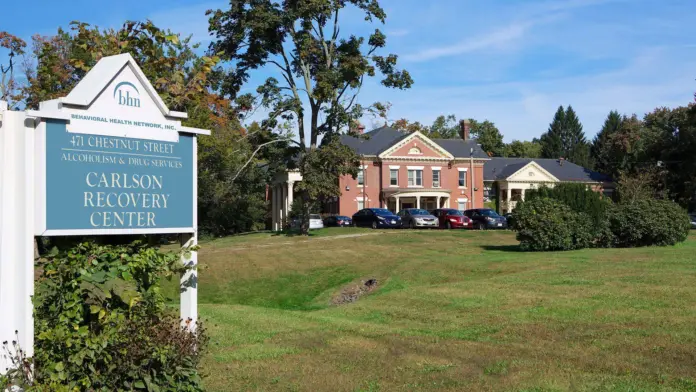
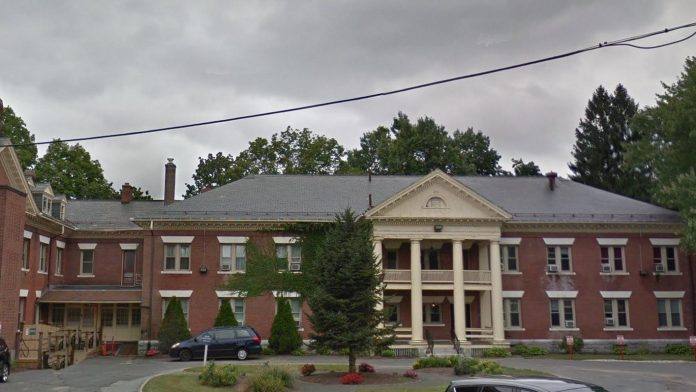
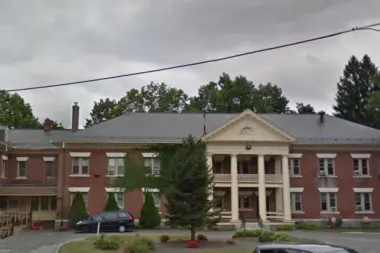
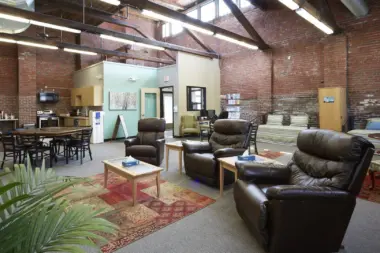
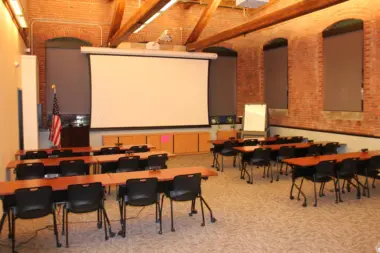
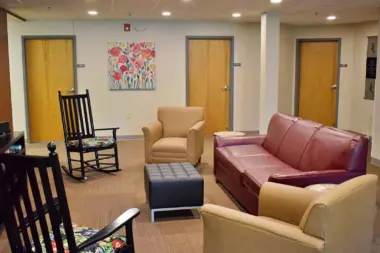
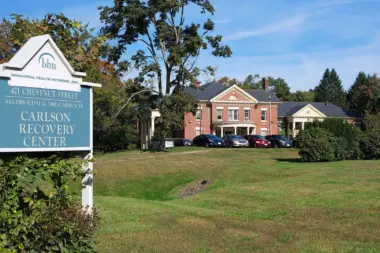
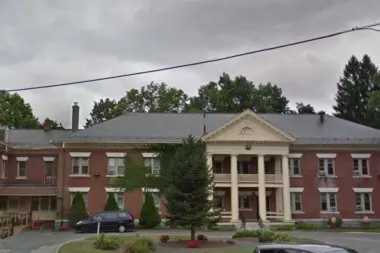
Accepted Insurance
Other Forms of Payment
Medicaid is a state based program that helps lower-income individuals and families pay for healthcare. Medicaid covers addiction treatment so those enrolled can use their coverage to pay for rehab. When a program accepts Medicaid the client often pays very little or nothing out of their own pocket.
Private insurance refers to any kind of healthcare coverage that isn't from the state or federal government. This includes individual and family plans offered by an employer or purchased from the Insurance Marketplace. Every plan will have different requirements and out of pocket costs so be sure to get the full details before you start treatment.
Self-pay involves paying for treatment out of your own pocket. You can use savings or credit, get a personal loan, or receive help from family and friends to fund your treatment. If you don't have insurance or your insurance plan doesn't cover a specific program, self-pay can help ensure you still get the care you need.
Financial aid can take many forms. Centers may have grants or scholarships available to clients who meet eligibility requirements. Programs that receive SAMHSA grants may have financial aid available for those who need treatment as well. Grants and scholarships can help you pai for treatment without having to repay.
Sliding scale payments are based on a client's income and family size. The goal is to make treatment affordable to everyone. By taking these factors into account, addiction recovery care providers help ensure that your treatment does not become a financial burden to you or your family, eliminating one barrier to care.
Medicare is a federal program that provides health insurance for those 65 and older. It also serves people under 65 with chronic and disabling health challenges. To use Medicare for addiction treatment you need to find a program that accepts Medicare and is in network with your plan. Out of pocket costs and preauthorization requirements vary, so always check with your provider.
Military members, veterans, and eligible dependents have access to specific insurance programs that help them get the care they need. TRICARE and VA insurance can help you access low cost or no cost addiction and mental health treatment. Programs that accept military insurance often have targeted treatment focused on the unique challenges military members, veterans, and their families face.
Addiction Treatments
Levels of Care
Outpatient Programs (OP) are for those seeking mental rehab or drug rehab, but who also stay at home every night. The main difference between outpatient treatment (OP) and intensive outpatient treatment (IOP) lies in the amount of hours the patient spends at the facility. Most of the time an outpatient program is designed for someone who has completed an inpatient stay and is looking to continue their growth in recovery. Outpatient is not meant to be the starting point, it is commonly referred to as aftercare.
The Carlson Recovery Center Detoxification Program provides medically monitored detoxification services for individuals withdrawing from alcohol and other drugs. The program offers both a detoxification component, for safe withdrawal from alcohol and drugs, and a treatment component of care. The treatment component is based on sound recovery principles, with a focus on assisting participants to develop a plan to continue their recovery after discharge.
Intensive Outpatient Programs (IOP) are for those who want or need a very structured treatment program but who also wish to live at home and continue with certain responsibilities (such as work or school). IOP substance abuse treatment programs vary in duration and intensity, and certain outpatient rehab centers will offer individualized treatment programs.
Residential treatment programs are those that offer housing and meals in addition to substance abuse treatment. Rehab facilities that offer residential treatment allow patients to focus solely on recovery, in an environment totally separate from their lives. Some rehab centers specialize in short-term residential treatment (a few days to a week or two), while others solely provide treatment on a long-term basis (several weeks to months). Some offer both, and tailor treatment to the patient's individual requirements.
Completing a drug or alcohol rehab program shouldn't spell the end of substance abuse treatment. Aftercare involves making a sustainable plan for recovery, including ongoing support. This can include sober living arrangements like halfway houses, career counseling, and setting a patient up with community programs like Alcoholics Anonymous (AA) or Narcotics Anonymous (NA).
Treatments
The goal of treatment for alcoholism is abstinence. Those with poor social support, poor motivation, or psychiatric disorders tend to relapse within a few years of treatment. For these people, success is measured by longer periods of abstinence, reduced use of alcohol, better health, and improved social functioning. Recovery and Maintenance are usually based on 12 step programs and AA meetings.
Addiction is a highly complex problem, and drug rehab in Massachusetts is often necessary to address it. These programs treat physical, mental, and relational issues that are involved. Treatment empowers individuals to manage these issues without the use of drugs.
The Dual Diagnosis Track (Enhanced Acute Treatment Services), a specialized component of the Detoxification Program, provides detoxification services for people with both mental illness and substance use disorders, who are insured by the Massachusetts Behavioral Health Partnership, and who meet the criteria for Massachusetts Department of Mental Health services. Appropriate individuals for this track have both addiction and mental health diagnoses, but do not require a locked facility. In addition to the group programming and individual counseling that is part of the Detoxification Program, these individuals receive enhanced detoxification services, including psychiatric evaluation by the Psychiatrist or Clinical Nurse Specialist, psychiatric medications and follow-up services, specialized groups and specialized individual treatment.
Opioid rehabs specialize in supporting those recovering from opioid addiction. They treat those suffering from addiction to illegal opioids like heroin, as well as prescription drugs like oxycodone. These centers typically combine both physical as well as mental and emotional support to help stop addiction. Physical support often includes medical detox and subsequent medical support (including medication), and mental support includes in-depth therapy to address the underlying causes of addiction.
Substance rehabs focus on helping individuals recover from substance abuse, including alcohol and drug addiction (both illegal and prescription drugs). They often include the opportunity to engage in both individual as well as group therapy.
Programs
Adult rehab programs include therapies tailored to each client's specific needs, goals, and recovery progress. They are tailored to the specific challenges adult clients may face, including family and work pressures and commitments. From inpatient and residential treatment to various levels of outpatient services, there are many options available. Some facilities also help adults work through co-occurring conditions, like anxiety, that can accompany addiction.
Young adulthood can be an exciting, yet difficult, time of transition. Individuals in their late teens to mid-20s face unique stressors related to school, jobs, families, and social circles, which can lead to a rise in substance use. Rehab centers with dedicated young adult programs will include activities and amenities that cater to this age group, with an emphasis on specialized counseling, peer socialization, and ongoing aftercare.
Clinical Services
Research clearly demonstrates that recovery is far more successful and sustainable when loved ones like family members participate in rehab and substance abuse treatment. Genetic factors may be at play when it comes to drug and alcohol addiction, as well as mental health issues. Family dynamics often play a critical role in addiction triggers, and if properly educated, family members can be a strong source of support when it comes to rehabilitation.
Group therapy is any therapeutic work that happens in a group (not one-on-one). There are a number of different group therapy modalities, including support groups, experiential therapy, psycho-education, and more. Group therapy involves treatment as well as processing interaction between group members.
In individual therapy, a patient meets one-on-one with a trained psychologist or counselor. Therapy is a pivotal part of effective substance abuse treatment, as it often covers root causes of addiction, including challenges faced by the patient in their social, family, and work/school life.
Amenities
-
Residential Setting
-
Private Rooms
Staff & Accreditations
Staff
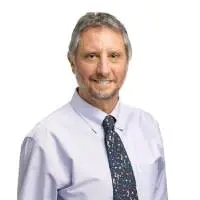
Steve Winn, Ph.D.
CEO
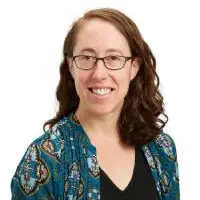
Dr. Sara Brewer
Medical Director
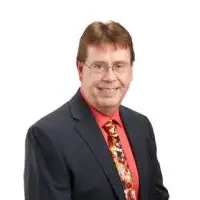
Stewart Joslin
CFO
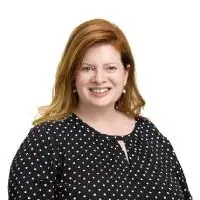
Jennifer Moore, LICSW
Clinical Director
Accreditations

The Commission on Accreditation of Rehabilitation Facilities (CARF) is a non-profit organization that specifically accredits rehab organizations. Founded in 1966, CARF's, mission is to help service providers like rehab facilities maintain high standards of care.
CARF Accreditation: Yes
Contact Information
471 Chestnut Street
Springfield, MA 01107





